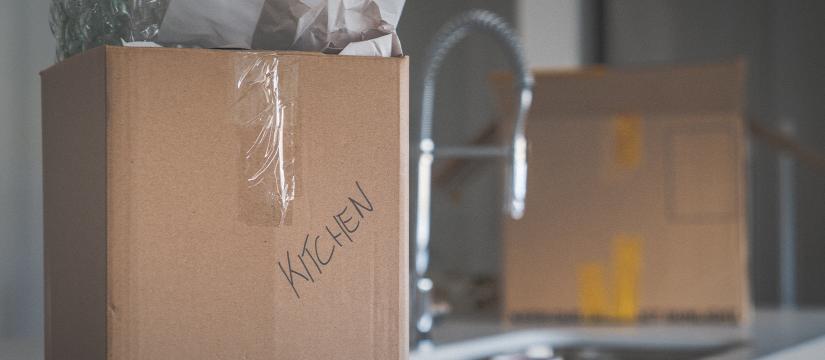
These 10 tips will help maximise your move
Since Australians have had to adapt to new ways of living and working from home, it seems making the move interstate or to regional towns is on the rise. But they say moving to a new house is one of the most stressful things you can do in life. It can be a physically and emotionally exhausting experience, particularly if you’re not prepared.
Whether you’re moving to the next suburb or across the country, the pressure is just the same. But don’t worry, we’ve got 10 tips to help make the process as smooth as possible.
1. Start early and Update your utilities
A great starting point is to Make a list of all the things you need to do and when you need them done by.
Deal with admin tasks in advance such as gas and electricity connections and disconnections. Sort your change of address out at the Post Office and don’t forget you will need your new address on your Driver’s License too or face heavy fines. If you have contents insurance, make sure you update your details within 14 days of moving. With NRMA Contents Insurance your possessions are even insured for fire, theft and accident while enroute to your new home.
2. Get packing
Give yourself plenty of time to pack. Invest in a label maker or big black texter so you know what is going where. After you’ve taped up your box, label it straight away. Write straight onto the tape and write where in your house it is going e.g. kitchen – so your movers or friends know which box goes where. Start in an area that you won’t require items from in the next few weeks such as storage cupboards or the shed. Putting away every one of your possessions will always take longer than you think. We recommend starting 6 weeks in advance. And if you don’t want to pay for boxes – begin collecting some from your local supermarket.
3. Declutter
Moving house is the best time to get rid of anything you don’t need. A good rule of thumb is that if you haven’t used an item in the last 12 months, you probably don’t need to take it to your new home. Use this opportunity to have a thorough cleanout of your possessions. You may want to book a skip bin if you’ll be getting rid of a lot.Otherwise utilise online marketplaces to sell or give things away or see if you have anything you can donate via https://www.givit.org.au/ which matches donations to specific people and organisations who need them.
4. Measure Up
Make sure you know whether or not all of your furniture will fit inside your new house.Check that your fridge will fit in the kitchen space and your bed will work in the bedroom. Don’t forget to get the tape measure out and check the widths of door frames too because there’s nothing worse than getting a couch stuck on moving day!
5. Eat what you have
In the weeks leading up to your move you want to try and clear out the fridge, freezer and pantry. Have a look at what needs to be eaten and create meals around what you have on hand. Have an esky with some ice bricks ready on moving day to help transfer what’s left in your fridge and freezer.
6. Pack thoughtfully
Pack lighter items such as stuffed animals and clothes in bigger boxes, and heavier items such as books and crockery in smaller boxes, making sure to carefully wrap any breakables. Use tea towels to wrap delicate kitchen items and clearly label any fragile boxes. Generally you are better off having more small boxes than giant ones as these are easier to lift and move around. And don’t forget to clearly label each box on the side with both the contents and the room that it is assigned to.
7. Store
If you have the space – try to store your boxes -a garage is a great option. If not – try to keep them neat or stacked as it helps with that overwhelming feeling that boxes are everywhere. Don’t stack your boxes too high. Or too heavy. A great tip for precious items is to use linen instead of bubblewrap.
8. Pack an ‘essentials’ bag
Pack the things you’ll need for the first few nights in your new home together in one bag so you aren’t opening boxes and searching for urgent items. Keep this bag with you in the car when you move so that it doesn’t get lost with all of your packed possessions in the moving truck. Work and school clothes, pajamas, toiletries, medications and some towels. Don’t forget about pet essentials like bowls and food. I’d also suggest packing some coffee and a kettle so you can have a morning cuppa in your new home after a big day of moving
9. Unpack straight away
It’s tempting to leave boxes for a few days once you’ve moved them to your new place. But the longer you leave them, the more difficult it will be for you to find the motivation to unpack. So do as much as you can immediately! Put things in their right place and store flattened empty boxes out of the way. Enlist the help of some friends or family to maintain morale and momentum on your first couple of days.
10. Hire professional removalists
Even if you just use professionals for your large items such as fridge and beds, it is worth getting outside help from people that move every day. Get quotes as some will charge per hour, others per room and so depending on your requirements the costs can vary. Look at online reviews or find out through word of mouth who the recommended removalists in your area are. Make sure to book them well in advance so that you can have the removalists of your choice.
